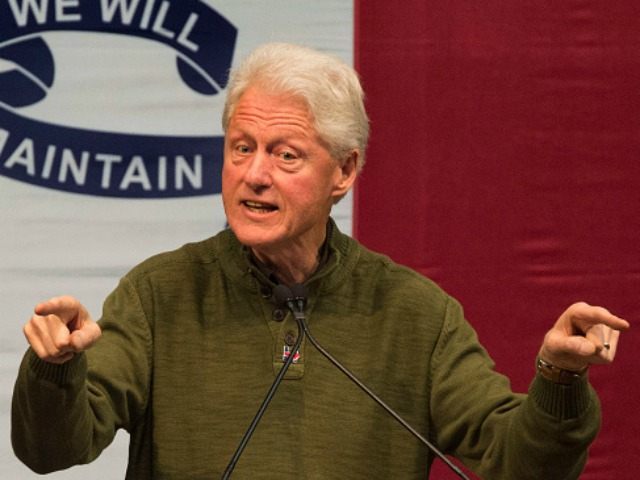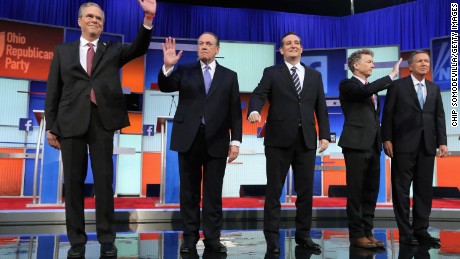There is a great Saturday Night Live parody of Hillary Clinton literally turning into Bernie Sanders:
https://www.youtube.com/watch?v=Cs47ce4QRBY
(Video clips of the hilarious skit are widely available on the Internet, here and here among other places.)
Now let’s get back to that topic of amnesia about 2008.
On Thursday, February 21, in the 2008 campaign, Senator Hillary Clinton leveled a singular accusation against Senator Barack Obama.
From transcripts:
“SEN. CLINTON: Well, I think that if your candidacy is going to be about words, then they should be your own words. That’s, I think, a very simple proposition. (Applause.) And you know — you know, lifting whole passages from someone else’s speeches is not change you can believe in; it’s change you can Xerox. And I just don’t think —
SEN. OBAMA: Oh, but that — that’s not what happened there —
SEN. CLINTON: No, but — you know, but Barack, it is, because if — you know, if you look — (jeers from the audience) — if you look — if you look — if you look at the YouTube of these videos, it does raise questions.”
The exchange attracted some attention on the campaign trail, although with less than success than the Clinton campaign presumably hoped. As discussed by anchor Lloyd Robertson on CTV Television the same night,
LLOYD ROBERTSON: And the two Democratic contenders for the U.S. Presidential nomination struck a few sparks tonight during a debate in the crucial state of Texas. At one point the moderator asked Senator Barack Obama how he responded to charges from Senator Hillary Clinton’s campaign that he was guilty of plagiarizing a speech by the Governor of Massachusetts. Obama pointed out that the governor, Demal Patrick, was a co chair of his campaign.
BARACK OBAMA (Democratic Presidential Candidate): The notion that I had plagiarized from somebody who was one of my national co chairs, who gave me the line and suggested that I use it I think is silly.
Less pointed than the criticism itself is the remarkable fact that it came from Hillary Clinton, who is now going around trying to sound like Elizabeth Warren.
As I wrote in 2008, as a feminist I would like to vote for a woman for president. But the fundamental problems with Mrs. Clinton remain exactly the same now, as then, including her ability to say nice-sounding things, good things, and then to turn around and either do the opposite or use her language as a smokescreen for economic rapacity.
Quite simply, this is a candidate who has never marched in the vanguard for economic justice. She is still GOP Lite, the Republicans’ stop-loss candidate, as Mr. Koch’s recent comments confirm.
As fallible human beings, we all fall short of perfect truth. But Mrs. Clinton carries a pleasant, complacent deceitfulness into pathology territory, like a spouse in denial. She can sound so nice that, at least when she feels relatively comfortable, she resembles some of the moms you remember from the PTA, down to earth, reasonably sensible–and then she trots out a line about the other candidate that turns out to be either exactly the reverse of true, or far more applicable to herself.
Take for example her habit, or pattern, of accusing others of exactly her own problems, like the accusation that Obama was using someone else’s words, or the (dog-whistle) harping on Obama’s alleged inexperience. There was also her other jaw-dropping line on Barack Obama in 2008:
“Well, you know, Senator Obama, it is very difficult having a straight-up debate with you, because you never take responsibility for any vote, and that has been a pattern.”
As I wrote back then, I never did think this was a particularly good read on Obama, whose positions generally come across as measured and rational–well thought out, in other words.
The criticism applies better to the Clintons. Clinton’s vote for George Bush’s war is the perfect example. The public overwhelmingly recognizes that the Iraq resolution gave Bush the cover he needed to invade Iraq. But did Mrs. Clinton acknowledge that? No, her version of the story was that she voted for the war in order to rein in Bush.
As for Bill Clinton, he is rapidly becoming the epicenter of defensiveness. In this election cycle, he has spoken to audiences as though he thinks the Iraq War should not even be brought up. As I wrote in the 2008 election, Bill Clinton is now (again) lumbering around testy and blustering, bullying reporters and blaming the media for his wife’s problematic candidacy. The main difference is that President Clinton was red-faced in 2008 and is pale and thin now.
This is not a matter of appearances. It’s the conduct that is unbecoming. And yet the Clintons themselves seem to feel little doubt that Bill Clinton is adored wherever he goes. (The grain of truth in this representation is that, as in 2008, the Clintons fare better with audiences and voters in communities with less access to the Internet. In 2008, Hillary Clinton did better with seniors, as she does to some extent now, in some regions. In 2016, she often does better with African-Americans–especially in the Deep South states with the widest racial disparity in Internet access.)
Back to Mrs. Clinton’s own career. To recap: she was a good student in college and at Yale Law; flunked the bar exam; moved to Arkansas and re-took the bar exam there; passed. Married Bill Clinton, who became Arkansas’ attorney general and then governor for several terms, after an early loss.
Her law career in Arkansas? Her law career was as the governor’s wife. Look where she worked. For all Mrs. Clinton’s high-sounding rhetoric about ‘fighting for us’, ‘standing up to the NRA’, etc., did she take a low-paying public-service job in the Public Defender’s office? No. Did she go to work as an Assistant District Attorney, fighting crime? No. Welfare or Child Services? No. Did she work as a labor lawyer, helping organizers in Arkansas? Pursue corporate malefactors for workplace abuses or environmental abuses? Sexual harassment? Get real. This is no Norma Rae. Mrs. Clinton went for a ‘good’ job, a job she got as a pol’s wife, in the most established law firm in Arkansas. (For perspective, check out statistics on the employment situation for most young adults with first-professional degrees in the late 1970s.)
Back to February, 2008 —
By the way, what Obama had said was,
“We are going to rid the tax code of these loopholes and giveaways. We’re going to stop giving a penny of your money to anybody who ships a job out of Texas, Ohio or anywhere else to another country. We’re certainly going to begin to get the tax code to reflect what the needs of middle class families are, so we can rebuild a strong and prosperous middle class.”
Surely every Obama voter, including this one, believes that we would be better off if these goals had been achieved. But they have been obstructed, to the last syllable, by Republicans in Congress and out. And they were never boosted successfully, or effectively, by the Clintons or by Hillary Clinton’s top allies. The globe-trotting Clintons have been considerably more engaged in reaping big bucks abroad than in keeping American jobs at home.
In hindsight, it looks as though Clinton’s accusation of plagiarizing was basically an indirect attack on Obama’s statement itself. She couldn’t outright come out and oppose keeping jobs at home or getting rid of corporate giveaways in the tax code. But she could signal indirectly, to interested donors, that she had her mind on other things.
















